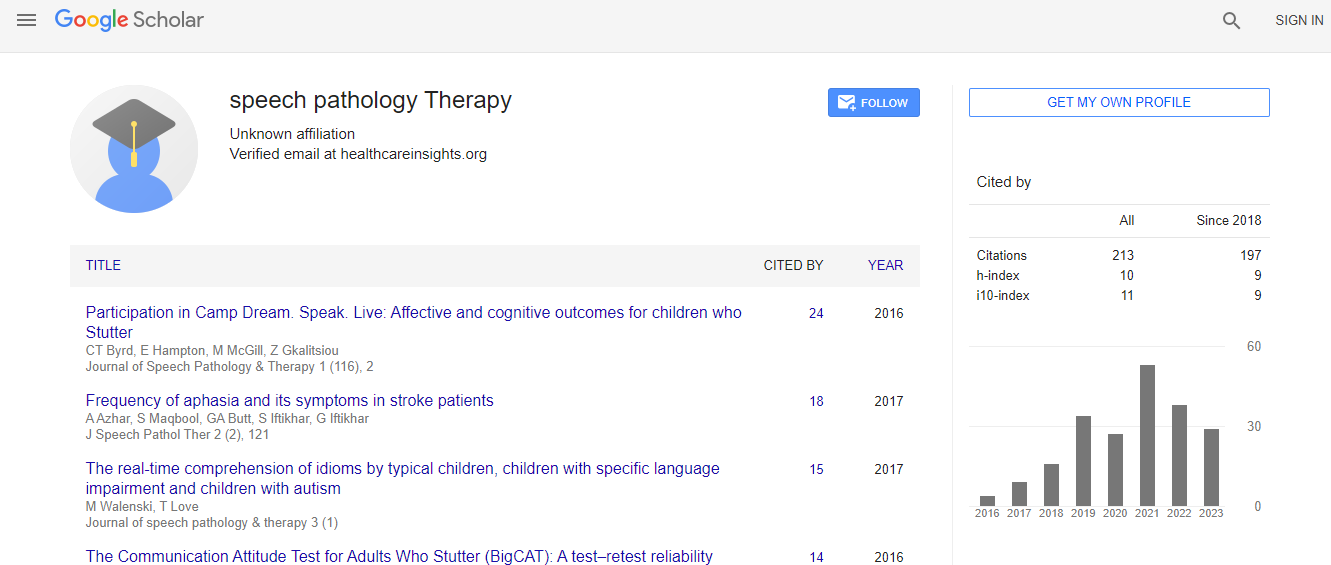Research Article
The Effect of a Vocal Loading Task on Vocal Function Before and After 24 Hours of Thickened Liquid Use
Mary Gorham-Rowan1*, Alyson Berndt2, Matthew Carter1 and Richard Morris31Valdosta State University, 1500 N. Patterson St. Valdosta, Georgia
2University Hospital, Augusta, GA
3Florida State University, 600 W. College Avenue, Tallahassee, Florida
- *Corresponding Author:
- Mary Gorham-Rowan
HSBC 2132
Department of Communication Sciences and Disorders
Valdosta State University
Valdosta, Georgia, USA
Tel: +1 229-333-5800
E-mail: mmgorhamrowan@valdosta.edu
Received date: October 07, 2015 Accepted date: January 07, 2016 Published date: January 14, 2016
Citation: Gorham-Rowan M, Berndt A, Carter M, Morris R (2016) The Effect of a Vocal Loading Task on Vocal Function Before and After 24 Hours of Thickened Liquid Use. J Speech Pathol Ther 1:103. doi: 10.4172/2472-5005.1000103
Copyright: © 2016 Gorham-Rowan M, et al. This is an open-access article distributed under the terms of the Creative Commons Attribution License, which permits unrestricted use, distribution, and reproduction in any medium, provided the original author and source are credited.
Abstract
Objective: To determine the effect of a vocal loading task on vocal function before and after 24 hours of thickened liquid use.
Methods: Seven healthy adults, ages 19 to 52 years of age, were recruited as participants. Baseline data regarding daily food/liquid intake and urine specific gravity levels (USG) as a marker of hydration were obtained. Participants then completed a vocal loading task, which consisted of 3 × 10 repetitions of a sustained vowel task at 65 dB to 75 dB SPL. Voice recordings and subjective ratings of vocal fatigue and muscle soreness were obtained prior to and following the vocal loading task for both the pre-thickened liquid and post-thickened liquid experimental session. The voice samples were analyzed for changes in fundamental frequency, loudness, and perturbation measures.
Results: There was a significant main effect of vocal loading on vocal loudness as well as subjective ratings of vocal fatigue and muscle soreness; all parameters were higher post-vocal loading. There was also a significant main effect of thickened liquid use on jitter, as jitter levels were substantially lower post-thickened liquids.
Conclusion: The objective and subjective changes reported by the participants’ post-vocal loading are consistent with prior reports concerning normal adaptive responses to greater vocal demands and increased muscular effort. A brief period of thickened liquids does not appear to affect vocal function.
 Spanish
Spanish  Chinese
Chinese  Russian
Russian  German
German  French
French  Japanese
Japanese  Portuguese
Portuguese  Hindi
Hindi 